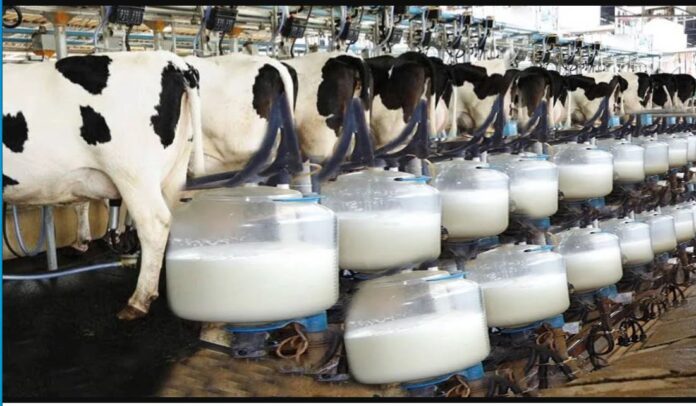Nigeria expects 1.6b litres of milk to meet protein requirements
By Jeph Ajobaju, Chief Copy Editor
There are federal plans to produce 1.6 billion litres of milk a year to ensure sufficient livestock products and protein in the diet of citizens rich and poor.
Agriculture and Rural Development Minister Mohammad Abubakar disclosed this when he inaugurated the National Pasture Development Programme (NAPDEP) at Paikon Kore grazing reserve in Abuja.
“It is worth noting that more than 95% of Nigeria′s ruminant production is primarily managed under the traditional pastoral system,” he said.
“It is a characteristic of extensive system where naturally grown pastures are the main sources of nutrition for the animals. Therefore, herders and husbanders rely on mobility in search of feeds, water, and friendly grazing areas.
“The result of this continuous movement in search of pasture has adversely affected the animals’ attainment of their optimal productivity and consistently impaired our national capacity for self-sufficiency
“It also affected livestock products and animal protein needs, especially our national target of 1.6 billion liters of milk per annum.”
_______________________________________________________________
Related articles:
Abuja sketches National Dairy Policy to raise agric output
Agric and manufacturing, others get N151.23b CBN boost
Fuel price rise killing businesses, farmers and SMEs lament
_________________________________________________________________
World ranking in livestock
Abubakar said Nigeria’s world ranking by the Food and Agricultural Organisation (FAO) is 15th in cattle, fifth in sheep, third in goat, and 17th in camel farming.
“The continuous extensive system of production is not a viable option since the land area for grazing and feed availability are severely limiting factors in the high livestock producing zones of Nigeria.
“It is therefore very necessary and top priority that all players in the industry focus on meeting the huge demand for pasture.
“This will give a great opportunity to unlock the potential of the Livestock Industry and the development of its rich value chains,” he added, according to the News Agency of Nigeria (NAN) per Nairametrics.
NAPDEP
Abubakar urged industry partners, especially researchers, academics, sub-national governments, international development partners, and the private sector to support NAPDEP.
NAPDEP also aims to reduce conflict emanating from cattle movement, attain self-sufficiency in good quality pasture/forage production, and facilitate transition from extensive grazing to a well-planned, settled form of livestock production.
The government last year launched a pilot project of the National Livestock Transformation Plan (NLTP) to reduce open grazing as it ensures herders stay in one location with government support.
Nigeria’s agriculture grew 3.16 per cent in the first quarter ended March (Q1 2022), a decrease of 0.42 percentage points from 3.58 per cent in Q1 2021.













